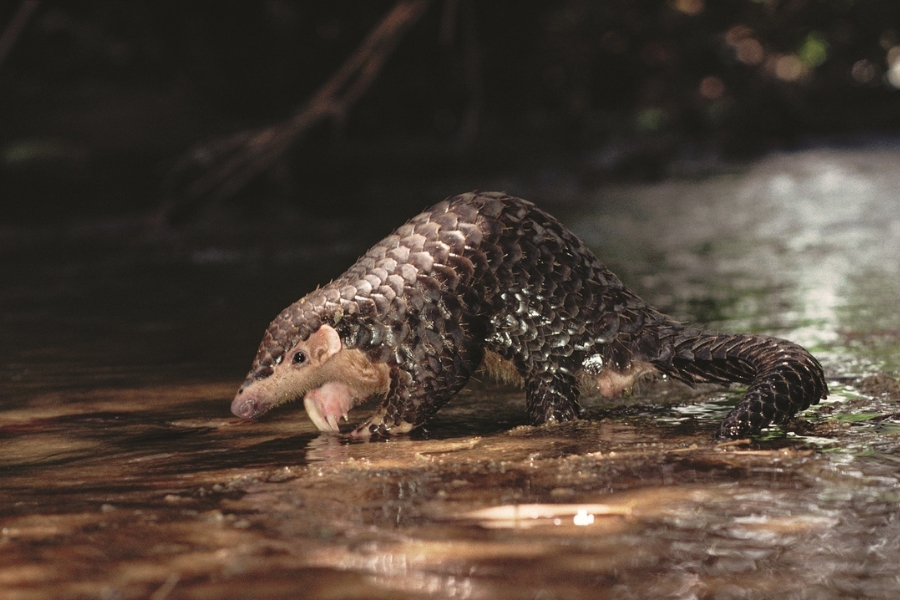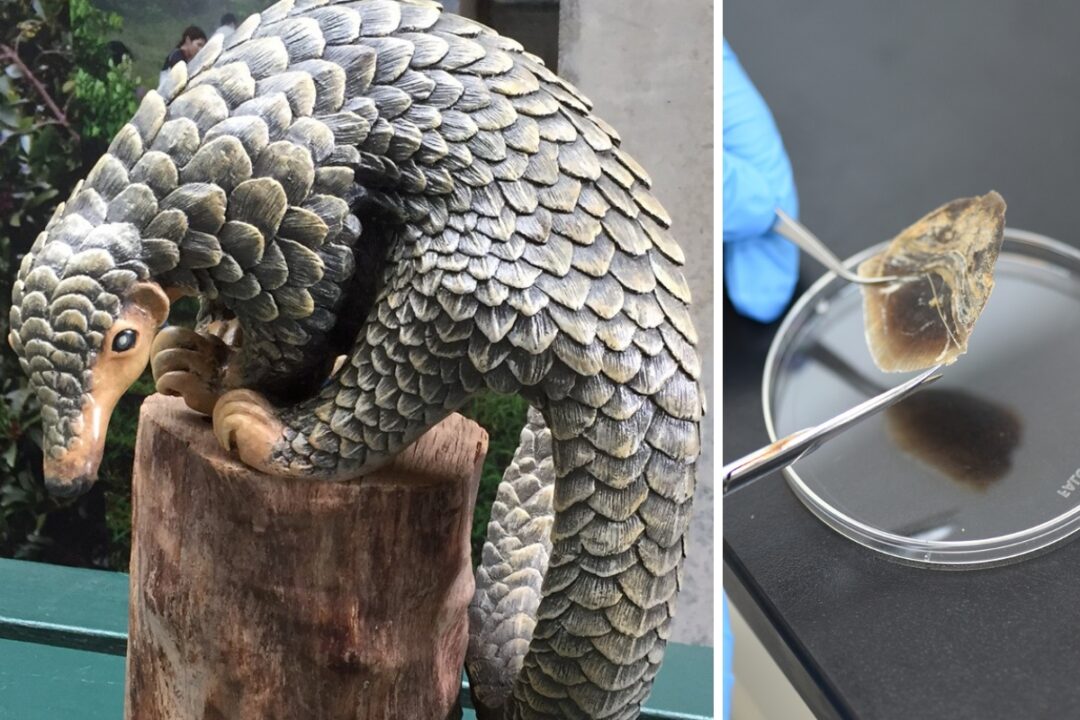The Kadoorie Farm & Botanic Garden has contributed towards the discovery of a new species of pangolin. The farm analysed scales taken during a wildlife seizure in Hong Kong and, in partnership with research teams from mainland China and Europe identified a new ‘mystery’ species of pangolin. The results of the discovery were published in the Proceedings of the National Academy of Sciences (PNAS) last month.
According to posts on the Kadoorie Farm’s social media pages, the study dates back to 2015, when its scientists began studying DNA samples taken during pangolin wildlife seizures and discovered that, “a small group of pangolin scale samples did not match with any known pangolin species when comparison was made with global databases.”
At the time, the Kadoorie scientists could not verify whether the 27 samples they analysed were from a new species as international reference DNA data was not complete for pangolins. However, in 2020, a team from the Yunnan University in China also discovered similar DNA data from seized pangolin scales in Yunnan.
Research teams from the Kadoorie Farm & Botanic Garden and Yunnan University decided to work together to unravel the mystery behind this suspected new species. “The DNA results and physical characteristics of samples suggested that the scales belonged to a new Asian pangolin, which has been conveniently named the Asian ‘mystery’ pangolin (Manis mysteria),” according to Kadoorie officials.

There are eight known species of pangolin, all of which are protected under national and international laws. Three of them — the Sunda Pangolin, the Chinese Pangolin (native to Hong Kong), and the Philippine Pangolin — are listed as critically endangered by the International Union for Conservation of Nature. The other five species are classified as either vulnerable or endangered.
To help reduce the extinction risk for the species, Kadoorie Farm & Botanic Garden entered a partnership with Hong Kong’s Fauna Conservation and the Agriculture, Fisheries and Conservation Department. Under this agreement, the farm’s scientists receive samples of every pangolin consignment seized in Hong Kong for future research. This initiative helped with the discovery the new mystery Asian pangolin species.
Header image credits: Kadoorie Farm & Botanic Garden via Facebook




